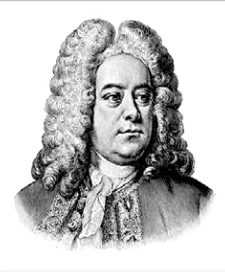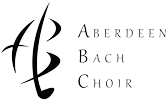
THE LIFE AND TIMES OF GEORGE FRIDERIC HANDEL (1685-1759)
According to a contemporary account by Sir John Hawkins (1719-1789), London magistrate, amateur musician, patron of the arts and a personal friend of Handel, given in his book ‘A General History of the Science and Practice of Music’…
[Handel was] “….in his person a very large made and portly man. His gait, which was ever sauntering, was rather ungraceful, as it had in it something of that rocking motion, which distinguishes those whose legs are bowed. His features were finely marked, and the general cast of his countenance placid, bespeaking dignity attempered with benevolence, and every quality of the heart that has a tendency to beget confidence and insure esteem. He was impetuous, rough and peremptory in his manners and conversation, but totally devoid of ill-nature or malevolence; indeed there was an original humour and pleasantry in his most lively sallies of anger or impatience, which, with his broken English and heavy Germanic accent, were extremely risible. His general look was somewhat heavy and sour, but when he did smile it was like the sun bursting out of a black cloud.”
Handel’s stature and position as one of the greatest Baroque composers of operatic, choral, ceremonial and instrumental music has long been recognised, and his eclectic and catholic style drew readily on direct influences from the music of Germany, Italy and England. As well as having been a brilliant composer, Handel is also regarded as having been a great dramatist, bringing the texts of his operas, oratorios and anthems vividly off the page with all manner of musical devices. His surviving compositions include 42 operas, 29 oratorios, more than 120 cantatas, numerous trios, duets and arias, much chamber music including many instrumental sonatas and concerti grossi, a large volume of keyboard music, odes and serenatas, dance suites, coronation anthems written for the British monarchy, and sixteen organ concerti. Handel spent the majority of his professional and productive life in London and, informed and influenced by earlier time spent in Germany and Italy, he introduced previously uncommon musical instruments into Britain through his works. These included the viola d'amore, the lute, the trombone, small and high-pitched cornetts, the theorbo, the French horn, the double bassoon, the viola da gamba, the carillon, the positive organ, and the harp.
THE YOUNG HANDEL
George Frideric Handel was born in Halle, in the southern part of the German state of Saxony-Anhalt, on February 23rd 1685. His father, an eminent barber and surgeon, denied the young Handel access to a musical instrument, and in fact did everything he could to oppose an interest in music, despite his son’s early passion for it, wishing for a more pecuniary rewarding career in law or commerce. There are various romantic stories about Handel managing to conceal a harpsichord in the attic of the family home, to which he went to practise in the dead of night, but these are by no means definitive. However, somehow he managed to acquire some skill at the keyboard because, on a family visit to the Court of Saxe-Weißenfels, where his father was employed as Court Surgeon and where his brother was Valet de Chambre, Handel’s impromptu organ-playing in the court chapel attracted the Duke’s attention, and Handel’s father was persuaded by his employer, presumably largely due to the Duke’s status and gravitas, to allow the boy organ lessons. Lessons on the violin, oboe and harpsichord soon followed and rapid progress was apparently made. Handel took lessons in harmony, counterpoint and composition and copied existing German and Italian manuscripts extensively. In 1702, Handel matriculated at the recently-founded University of Halle, studying both law (to appease his father) and music. Later that year, although a devout Lutheran, he was appointed as organist of the Calvinist cathedral. A year later, and without waiting to graduate, Handel left Halle for Hamburg where he held appointments as a first violinist and occasional harpsichordist at the opera house.


























